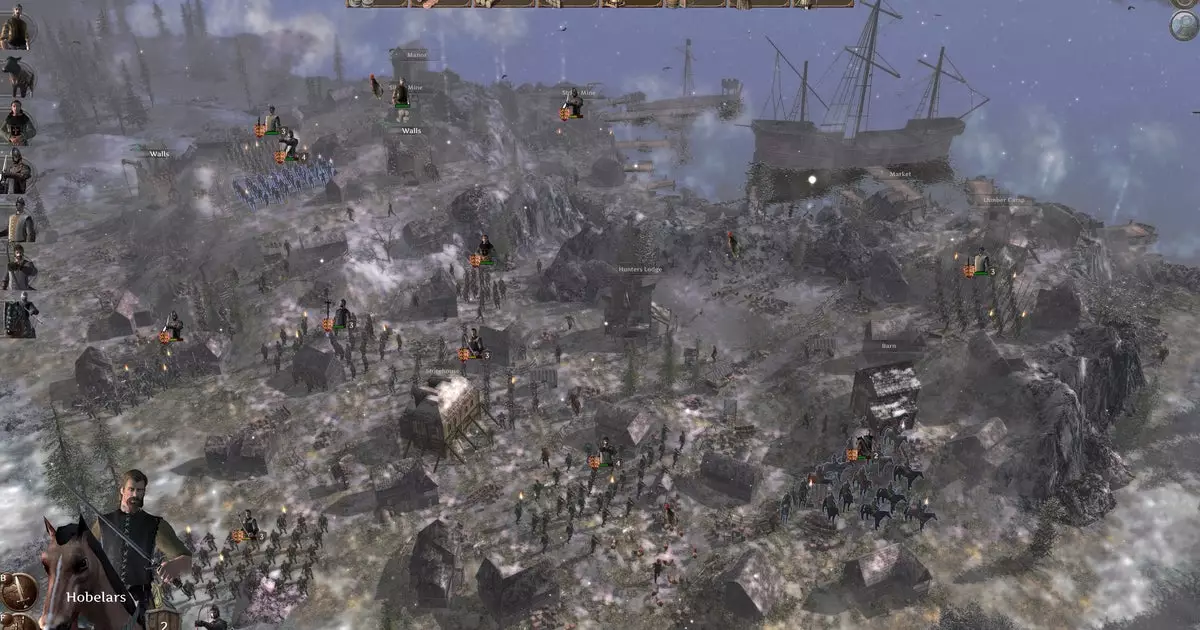The Crusades evoke a profound intrigue that transcends the medieval battlegrounds, emerging as a contentious topic within today’s social discourse. At their core, these religious wars aimed at reclaiming the Holy Land from Muslim control, reflect the deep-seated convictions and brutal strategies of the Latin Christians, igniting a clash of civilizations that has left an indelible mark on history. However, in recent times, the portrayal of the Crusades has morphed into a repository for memes and ideologies that are often manipulated by modern extremists. The phrase “deus vult,” which means “God wills it,” is frequently commandeered by neo-fascists as they romanticize a violent past that, for the most part, remains poorly understood by the very individuals who invoke it.
This misinterpretation is further exacerbated by popular culture and the gaming industry, which often simplifies the Crusades to mere entertainment fodder. With a foundation built upon a complex tapestry of motivations—be it genuine faith, political ambition, or a quest for power—the Crusades reveal both the nobility and savagery of human nature. Although the narrative has been explored through various mediums, such as literature and film, it is only recently that video games have begun to truly engage with this convoluted history in a meaningful way.
The Video Game Perspective: Knights Of The Crusades
Enter *Knights Of The Crusades*, a newly released grand strategy game that promises a nuanced portrayal of the first Crusade, enabling players to experience historical events from both Christian and Muslim perspectives. It’s a bold undertaking by the development team, who are prompting gamers to navigate the frantic and often disturbing complexities of this era. Unlike most titles that skirt around the darker realities of historical battles, this game dares to delve headfirst into the murky ethics of warfare, thereby challenging players to confront uncomfortable truths.
The gameplay immerses participants in a vast and dynamic world, replete with shifting alliances and moral dilemmas that echo the historical precedents set over the two hundred-year timeframe of the Crusades. The developers express a commitment to cultivating diverse cultural experiences, offering unique units, mechanics, and building sets for various factions—from Christian knights to Pagan tribes—transforming an otherwise straightforward strategy game into a cradle of historical significance.
However, as enticing as the premise may sound, it is essential to approach with caution. Will *Knights Of The Crusades* serve as a genuine exploration of a turbulent historical moment or fall prey to glorifying conflict? Often, contemporary portrayals of warfare in video games have risked devolving into mere fantasy, prompting players to take on roles as heroes or villains without grappling with the real cost of such actions. The balance between an engaging gaming experience and conveying the nuanced ethics of the Crusades remains delicate.
Reflections on Gaming and History
While honing in on the past through the lens of gaming can offer unique learning opportunities, it also brings to light inherent dilemmas. The legacy of the Crusades, characterized by fervent zealotry and violence, should not be obscured by romanticized gameplay. One might argue that games like *Crusader Kings*, though intricate and perhaps daunting, hold the potential for offering greater depth than simpler narratives. They invite players to navigate political landscapes, manage resources, and engage in alliances, shedding light on the multifaceted dynamics that shaped history.
As a contemporary audience, it is paramount to balance entertainment with responsibility. Should video game developers lean towards crafting more authentic histories, they risk alienating players who prefer the escapism that gaming provides. Conversely, veering into the realm of realism may encourage a new generation of players to educate themselves about the historical legacies that underpin their gaming experiences.
This raises an important question: can the Crusades, with their gruesome details and complex motivations, be reconciled with the often naïve, simplistic portrayals presented in video games? The challenge lies not just in creating an engaging experience but in fostering a dialogue about how we interact with the past through virtual mediums. As we embark on this exploration of the Crusades—through both the lens of history and the screens of our games—there’s an opportunity to engage deeply with the stories that continue to resonate even centuries later.

